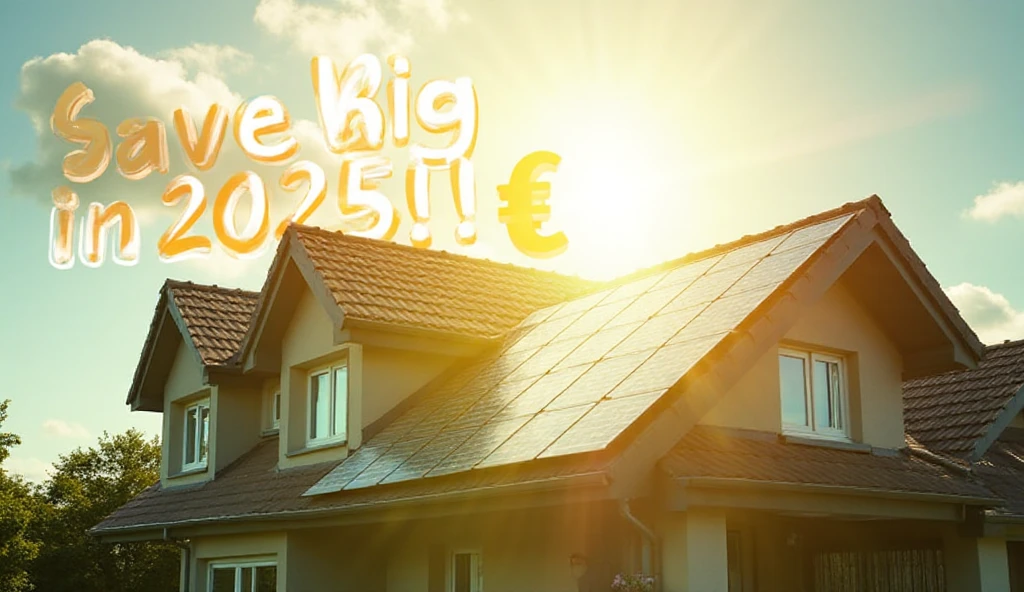Installing solar panels in the UK has become a financially smart move — not just for lowering energy bills but also for accessing valuable government grants and incentives. In 2025, several schemes are available to help homeowners and businesses reduce the upfront costs of going solar, earn money from surplus electricity, and improve long-term savings.
This guide explains all the major UK solar incentives available in 2025, how to qualify, and what to expect.

1. Smart Export Guarantee (SEG)
What It Is
The Smart Export Guarantee (SEG) is a government-mandated scheme that requires energy suppliers with over 150,000 customers to pay you for any excess electricity your solar panels export to the National Grid.
Key Facts
- Payments are made per kilowatt-hour (kWh) exported
- Rates range from £0.04 to £0.15 per kWh in 2025, depending on the supplier
- SEG is available only if your system is MCS-certified and has a smart meter capable of measuring exports
- Payments are tax-free for most residential users
How to Apply
- Choose a SEG-compliant electricity supplier
- Submit proof of MCS certification and export capability
- Payments are typically made quarterly or monthly, depending on the supplier
Who Benefits?
Anyone with a solar panel system exporting energy to the grid — including homeowners, landlords, and businesses.
2. Energy Company Obligation (ECO4)
What It Is
The ECO4 scheme is part of the UK government’s effort to reduce fuel poverty and improve energy efficiency. Running through 2026, it provides funding for energy-saving upgrades, including solar panels in certain situations.
Key Facts
- Targeted at low-income households and vulnerable residents
- May cover full or partial cost of solar panel installation
- Eligibility is often tied to receiving benefits or having a low EPC (Energy Performance Certificate) rating
- Available across England, Scotland, and Wales
How to Apply
- Contact an ECO4-registered installer or energy provider
- Complete a home energy assessment
- Provide proof of eligibility (benefits or income documentation)
Who Benefits?
Low-income homeowners or tenants in homes with poor energy efficiency ratings.
3. 0% VAT on Solar Panel Installations
What It Is
Since 2022, the UK government has offered zero VAT on energy-saving materials, including solar panel systems. This continues through at least March 2027.
Key Facts
- Applies to both supply and installation
- Covers solar PV systems, inverters, mounting kits, and labour
- Available to residential properties only
- Can save you 20% upfront on installation costs
How to Claim
- Your MCS-certified installer applies VAT exemption automatically on your invoice
- No paperwork needed from the homeowner
Who Benefits?
All UK homeowners installing solar panels on domestic properties.
4. Boiler Upgrade Scheme (for Heat Pumps, Not Solar PV)
While not directly related to solar PV, the Boiler Upgrade Scheme (BUS) offers up to £7,500 toward the installation of air or ground source heat pumps. It’s useful for those considering combining solar panels and low-carbon heating.
- Can complement solar panels for fully electric, energy-efficient homes
- Available in England and Wales
- Homes must meet minimum insulation standards
5. Local Council & Regional Solar Grants
What It Is
Many local authorities and regional energy hubs offer extra support for solar panel installations — sometimes in the form of grants, interest-free loans, or co-funded projects.
Examples
- Scottish Government Home Energy Scotland Scheme – Grants and loans for renewables
- Welsh Government Nest Scheme – Free energy efficiency improvements for eligible households
- Greater London Authority Solar Together – Group-buying discounts on solar installations
How to Find Support
- Visit your local council website or energy advice service
- Search for “solar panel grant” plus your postcode or region
- Speak with your chosen installer — many have local knowledge of available schemes
Who Benefits?
Varies by region. Some are income-based; others are open to all residents.
6. Capital Allowances for Businesses
UK businesses installing solar panels can benefit from capital allowances, including the Full Expensing scheme introduced in 2023.
Key Facts
- Businesses can deduct 100% of the cost of solar equipment from profits in the year of purchase
- Applies to both purchase and installation costs
- Reduces corporation tax liability
- Solar panels are classed as plant and machinery
Who Benefits?
UK-based limited companies, partnerships, and sole traders investing in commercial solar.
7. Net Metering & Battery Storage Incentives
While the UK does not offer formal net metering, homeowners using battery storage can still benefit indirectly:
- Use more of your solar power rather than selling it cheap
- Avoid buying electricity at peak rates (typically £0.30–£0.40 per kWh)
- Store energy generated during the day for evening use
Although there’s no national battery incentive in 2025, some regional programs and councils offer battery grants as part of whole-home energy efficiency schemes.
Quick Comparison Table
| Incentive | Type | Value | Eligibility | Applies To |
|---|---|---|---|---|
| SEG | Export payment | ~£100–£250/year | MCS-certified, smart meter | All generators |
| ECO4 | Grant | Up to full cost | Low-income/benefits | Homes with low EPC |
| 0% VAT | Tax relief | 20% saving | All residential installs | Homeowners |
| Local Grants | Grant/loan | Varies | Region-specific | Varies |
| Capital Allowance | Tax deduction | 100% of cost | All UK businesses | Commercial installs |
FAQs About Solar Grants in the UK
Can I combine multiple solar incentives?
Yes. For example, you can benefit from 0% VAT, SEG payments, and local grants at the same time. However, you can’t claim ECO4 and SEG on the same kWh of exported power — check eligibility with your installer.
Is there a UK government grant for solar panels for everyone?
There’s no universal national grant for all homeowners in 2025, but schemes like SEG, 0% VAT, and local council programs are widely accessible.
How do I find out if I qualify for ECO4?
Check with your energy supplier or a government-accredited installer. They’ll assess your eligibility based on income, benefits, and EPC rating.
Are SEG payments guaranteed?
Energy suppliers are required by law to offer SEG payments, but rates vary, so shop around for the best tariff.
Can landlords apply for solar incentives?
Yes. Landlords can access SEG and 0% VAT. ECO4 may apply if tenants qualify, and some regional schemes include rental properties.
Final Thoughts
In 2025, UK solar incentives are stronger than ever, offering homeowners and businesses multiple ways to save money and reduce carbon emissions. Whether through SEG payments, ECO4 support, or zero VAT, the government is making solar energy more accessible and financially rewarding.
Before installing, make sure to:
- Use an MCS-certified installer
- Apply for the right grants and schemes
- Compare SEG rates from different suppliers
- Check for regional offers in your area
With the right setup, your solar investment can start paying off from day one — and continue delivering clean, affordable energy for decades.



Leave a Comment